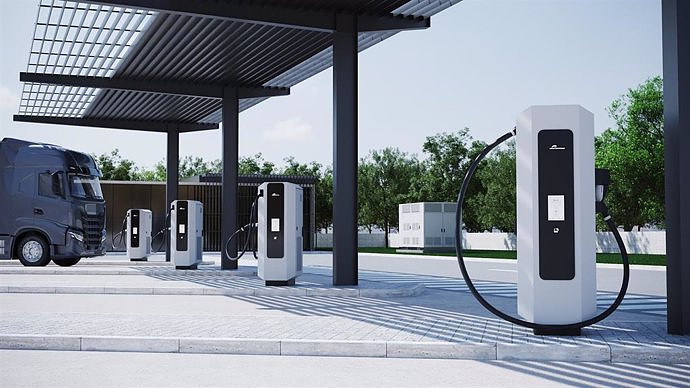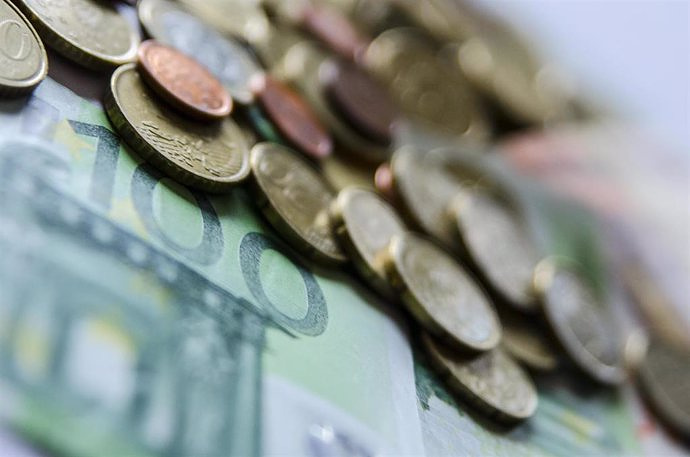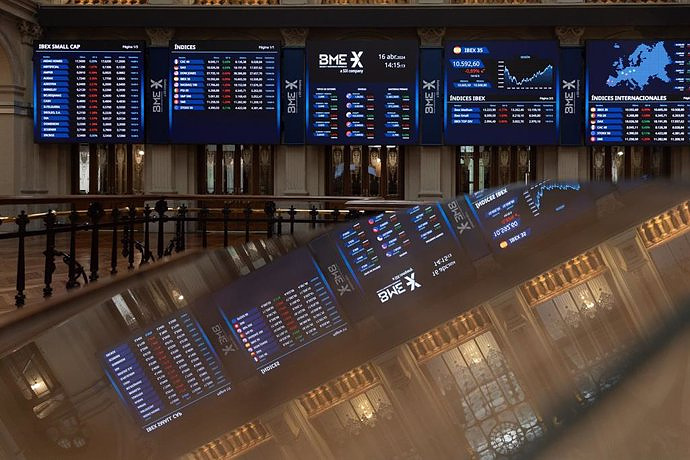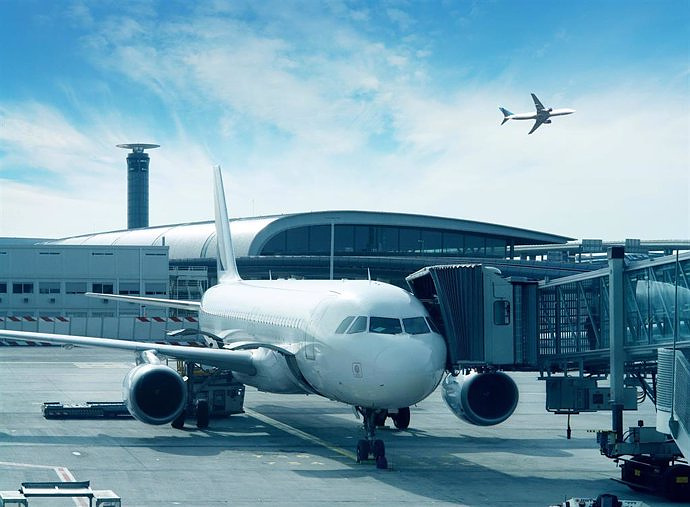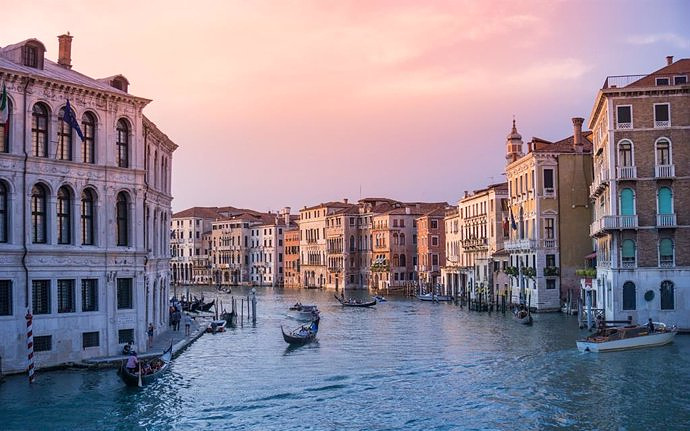For now, Venezuela maintains a charge d'affaires just like Spain, although Albares does not close the door on appointing an ambassador
MADRID/BRUSELAS, 3 Dic. (EUROPA PRESS) -
The president of Venezuela, Nicolás Maduro, has recently carried out a replacement in the head of his Embassy in Madrid that occurs at a key moment since the Government and opposition have resumed dialogue in Mexico and that both Spain and the EU have given clear signs of its willingness to ease sanctions if progress is made.
As sources from the Venezuelan Foreign Ministry have confirmed to Europa Press, the new head of mission in Madrid is Coromoto Godoy Calderón, a diplomat who was previously ambassador to Trinidad and Tobago and India. Coromoto herself reported on her Twitter of her arrival in Madrid on November 16.
Godoy takes over from Mauricio Rodríguez Gelfenstein, who was chargé d'affaires --a level lower than that of ambassador-- and will maintain the same rank as this one, since to be an ambassador it would be necessary to request the placet from the Spanish Government and there is no record that the Venezuelan Executive has done so.
The handover at the Venezuelan Embassy in Madrid coincided with the resumption on November 26 in Mexico of the dialogue between the Government and the opposition, represented by the Unitary Platform. The move has been highly celebrated both by the United States, which has been pushing in this direction, and by the EU, including Spain.
In fact, both the High Representative for Foreign Policy of the EU, Josep Borrell, and the Minister of Foreign Affairs, José Manuel Albares, have hinted that if progress is made in the dialogue, whose ultimate goal is the holding of democratic elections , free and fair in Venezuela, steps could be taken to ease sanctions.
"We are willing to review the sanctions imposed on the government of Nicolás Maduro if progress is made in the dialogue," Borrell said this week. Community sources have stressed that the sanctions were imposed due to the deterioration of democracy in the country and are "reversible or increaseable depending on the evolution of the situation."
Albares has pronounced himself in a very similar way. "The sanctions were imposed for certain reasons, they are not called to be eternal, if those reasons disappear," the sanctions could also wane, he said in statements to the press during the meeting of the Socialist International in Madrid.
In a subsequent interview in 'El País', he also raised the possibility of appointing ambassador to Venezuela, a country in which the representation has been held by a business manager since November 2020 with the departure of Jesús Silva. With this gesture, the Government showed its disagreement with the situation in the country.
Initially, the position was held by Juan Fernández-Trigo, but his appointment as Secretary of State for Ibero-America and the Caribbean in July 2021 forced the Government to find a replacement for him, for which he appointed Ramón Santos in November 2021.
"It was a political gesture that was taken to promote certain conditions," said the minister regarding the decision to demote the head of mission in Caracas from ambassador to charge d'affaires, expressly citing the dialogue that the government and opposition have now resumed.
If these conditions occur, "of course it is a decision that can be reversed," stressed the minister, arguing that "Spain does not want to see itself without an ambassador in a sister country in Latin America, neither in Venezuela nor in any other."
The minister denied that this eventual step could break the consensus within the EU, stressing that "France never lowered the status of ambassador to charge d'affaires and Portugal, which did, recently raised it."
However, there are still other countries such as Germany, Italy, Greece, Poland or the Netherlands that still have a business manager in Caracas. Europa Press has contacted several of them and none has indicated that for now they are going to take the step of increasing their representation.
The same thing also happens with the EU Delegation in the Venezuelan capital. Caracas expelled the European ambassador, Isabel Brilhante Pedrosa, in February 2021 in response to the sanctions imposed by the Twenty-seven against twenty Venezuelan deputies and officials.
Finally, in September of that year, he appointed the Spanish Rafael Dochao as charge d'affaires in Venezuela, thus lowering the level of his representation, a decision that has been maintained to date.
The community sources consulted by Europa Press have pointed out that "any change regarding the level of diplomatic relations with Venezuela would be discussed with the member states in the context of the concrete steps towards democratization."
The political division within the borders of Venezuela also extends to diplomatic representations abroad, since in Spain the Embassy designated by Chavismo coexists with another representation named after the self-proclamation of the opposition Juan Guaidó as "president in charge" in January 2019.
Antonio Ecarri, who is in charge of this opposition delegation, has explained to Europa Press that this week he went to the headquarters of the Ministry of Foreign Affairs, EU and Cooperation to personally bring the first agreement arising from the resumption of dialogue between Chavismo and the Venezuelan opposition.
During the meeting, which was attended by the director general for Latin America, Enrique Erik Yturriaga, the Spanish authorities did not notify "any change" in relations, explained Ecarri, who is not aware of a possible renewal at Maduro's Embassy in Madrid.
The representative of Guaidó, who claims to represent "99 percent of Venezuelans" residing in Spain, has nevertheless acknowledged that if the Executive of Pedro Sánchez decided to raise the rank of diplomatic relations with Venezuela, "it would totally change the policy".
"It wouldn't be to party," he added, before recalling that, despite the latest rapprochement between the parties, "there has been no real progress" in the political arena in the South American country, where the opposition continues to demand Maduro's call for free elections.
Ecarri has admitted that there may be a turning point in January, since it will be then when the mandate of the current leadership of the National Assembly, elected at the end of 2015, expires, the basis on which Guaidó claims his legitimacy to establish himself as an alternative to the Chavista government. .
It should be remembered that the Spanish government has not recognized the elections in which Maduro was re-elected in 2018 and at first recognized Guaidó as president in charge of Venezuela after he proclaimed himself as such in January 2020. However, in the In recent times, that recognition has remained a dead letter, leaving Guaidó relegated to the role of interlocutor within the opposition.

 Exploring Cardano: Inner Workings and Advantages of this Cryptocurrency
Exploring Cardano: Inner Workings and Advantages of this Cryptocurrency Seville.- Economy.- Innova.- STSA inaugurates its new painting and sealing hangar in San Pablo, for 18 million
Seville.- Economy.- Innova.- STSA inaugurates its new painting and sealing hangar in San Pablo, for 18 million Innova.- More than 300 volunteers join the Andalucía Compromiso Digital network in one month to facilitate access to ICT
Innova.- More than 300 volunteers join the Andalucía Compromiso Digital network in one month to facilitate access to ICT Innova.-AMP.- Ayesa acquires 51% of Sadiel, which will create new technological engineering products and expand markets
Innova.-AMP.- Ayesa acquires 51% of Sadiel, which will create new technological engineering products and expand markets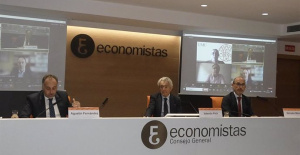 Families with average income allocate a third of their income to paying taxes, according to economists
Families with average income allocate a third of their income to paying taxes, according to economists The Ibex falls 0.4% and gives up 11,000 points due to the bad US GDP data.
The Ibex falls 0.4% and gives up 11,000 points due to the bad US GDP data.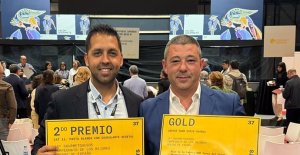 STATEMENT: Torta del Casar receives two awards at Madrid Gourmets
STATEMENT: Torta del Casar receives two awards at Madrid Gourmets STATEMENT: Erum Vial remembers the importance of road education to improve road safety
STATEMENT: Erum Vial remembers the importance of road education to improve road safety How Blockchain in being used to shape the future
How Blockchain in being used to shape the future Not just BTC and ETH: Here Are Some More Interesting Coins Worth Focusing on
Not just BTC and ETH: Here Are Some More Interesting Coins Worth Focusing on Retrópolis brings the golden age of video games and computing to the UPV
Retrópolis brings the golden age of video games and computing to the UPV Looking for video games that value the neighborhoods of Valencia
Looking for video games that value the neighborhoods of Valencia UPV researchers improve the efficiency of air conditioning systems using a geothermal heat pump
UPV researchers improve the efficiency of air conditioning systems using a geothermal heat pump València is committed to citiverse and smart tourism to be "the reference technological hub of the Mediterranean"
València is committed to citiverse and smart tourism to be "the reference technological hub of the Mediterranean" A million people demonstrate in France against Macron's pension reform
A million people demonstrate in France against Macron's pension reform Russia launches several missiles against "critical infrastructure" in the city of Zaporizhia
Russia launches several missiles against "critical infrastructure" in the city of Zaporizhia A "procession" remembers the dead of the Calabria shipwreck as bodies continue to wash up on the shore
A "procession" remembers the dead of the Calabria shipwreck as bodies continue to wash up on the shore Prison sentences handed down for three prominent Hong Kong pro-democracy activists
Prison sentences handed down for three prominent Hong Kong pro-democracy activists ETH continues to leave trading platforms, Ethereum balance on exchanges lowest in 3 years
ETH continues to leave trading platforms, Ethereum balance on exchanges lowest in 3 years Investors invest $450 million in Consensys, Ethereum incubator now valued at $7 billion
Investors invest $450 million in Consensys, Ethereum incubator now valued at $7 billion Alchemy Integrates Ethereum L2 Product Starknet to Enhance Web3 Scalability at a Price 100x Lower Than L1 Fees
Alchemy Integrates Ethereum L2 Product Starknet to Enhance Web3 Scalability at a Price 100x Lower Than L1 Fees Mining Report: Bitcoin's Electricity Consumption Declines by 25% in Q1 2022
Mining Report: Bitcoin's Electricity Consumption Declines by 25% in Q1 2022 Oil-to-Bitcoin Mining Firm Crusoe Energy Systems Raised $505 Million
Oil-to-Bitcoin Mining Firm Crusoe Energy Systems Raised $505 Million Microbt reveals the latest Bitcoin mining rigs -- Machines produce up to 126 TH/s with custom 5nm chip design
Microbt reveals the latest Bitcoin mining rigs -- Machines produce up to 126 TH/s with custom 5nm chip design Bitcoin's Mining Difficulty Hits a Lifetime High, With More Than 90% of BTC Supply Issued
Bitcoin's Mining Difficulty Hits a Lifetime High, With More Than 90% of BTC Supply Issued The Biggest Movers are Near, EOS, and RUNE during Friday's Selloff
The Biggest Movers are Near, EOS, and RUNE during Friday's Selloff Global Markets Spooked by a Hawkish Fed and Covid, Stocks and Crypto Gain After Musk Buys Twitter
Global Markets Spooked by a Hawkish Fed and Covid, Stocks and Crypto Gain After Musk Buys Twitter Bitso to offset carbon emissions from the Trading Platform's ERC20, ETH, and BTC Transactions
Bitso to offset carbon emissions from the Trading Platform's ERC20, ETH, and BTC Transactions Draftkings Announces 2022 College Hoops NFT Selection for March Madness
Draftkings Announces 2022 College Hoops NFT Selection for March Madness



